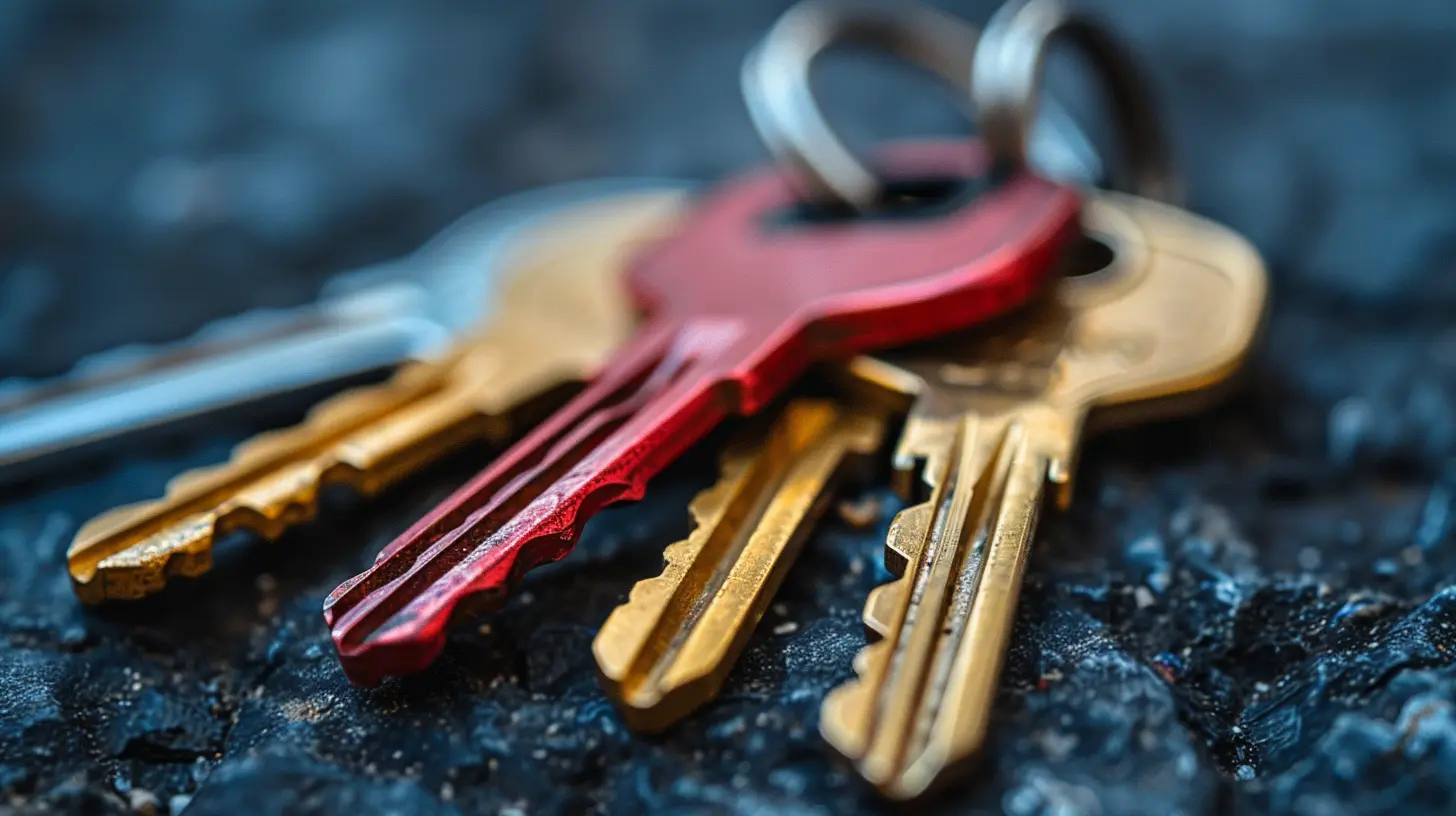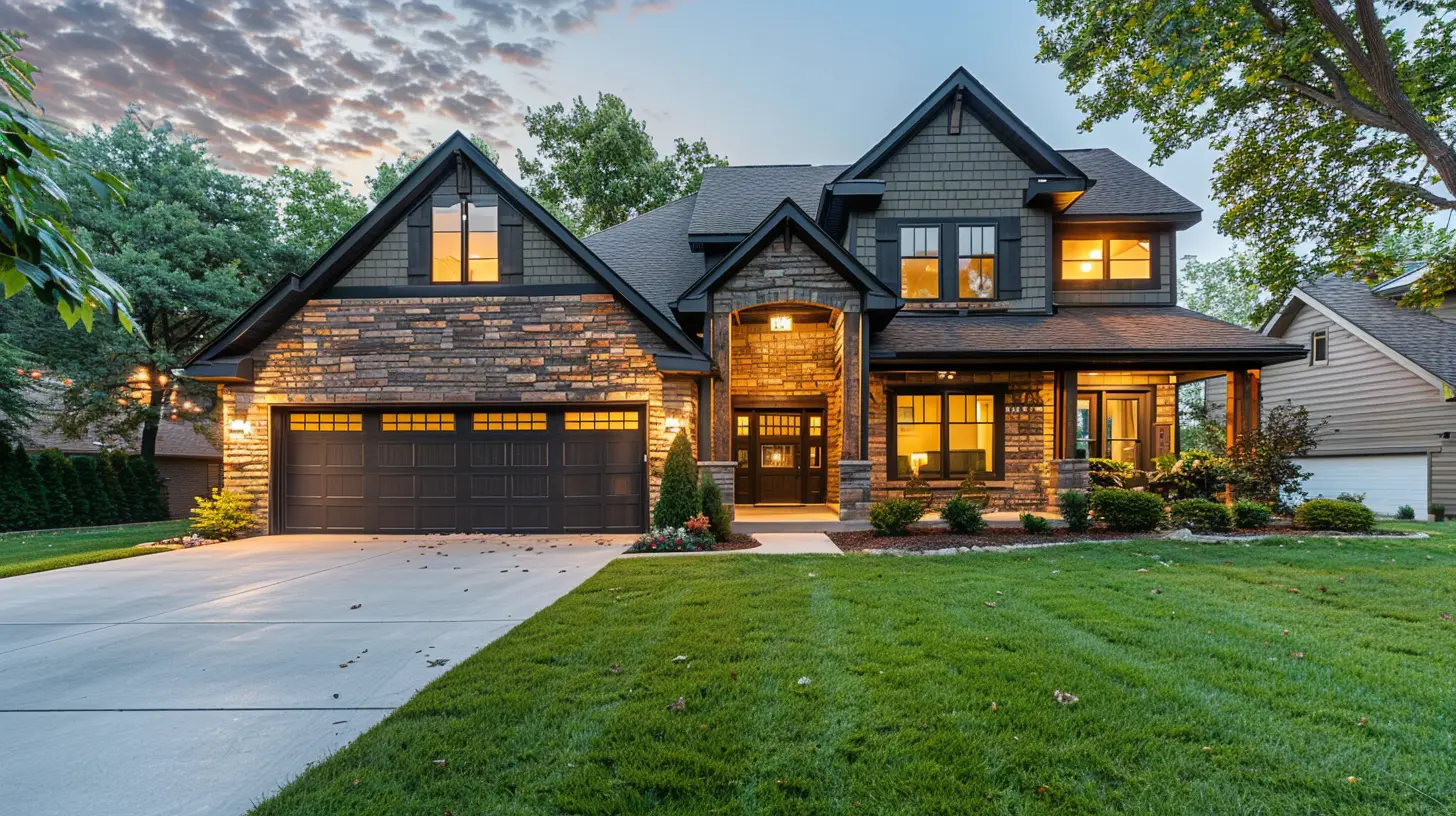16 March 2025
So, you’ve decided to buy a home. Exciting, right? But then, out of nowhere, the word mortgage pops up, and suddenly, it feels like you’re drowning in an ocean of financial jargon. Trust me, you’re not alone.
Mortgages can be confusing, especially if you’re new to the whole home-buying game. But don’t worry—I’ve got you. By the time you finish this article, you’ll feel like a mortgage pro (or at least confident enough to nod along when the bank starts throwing terms at you).
Let’s break it all down—from what a mortgage actually is to how you can get the best deal. 
What is a Mortgage, Anyway?
Alright, let’s start with the basics. A mortgage is just a fancy word for a home loan. It’s the money you borrow from a lender (usually a bank) to buy a house. In return, you promise to pay it back with interest over a set period.Think of it like this: You want a really nice bike, but you don’t have the cash upfront. A friend lends you the money under the condition that you pay them back in small amounts every month—with a little extra added as a thank-you for lending it to you. That "little extra" is interest, and the smaller payments are called monthly installments. 
Key Mortgage Terms You Should Know
Before we dive deeper, let’s tackle some of the most common mortgage jargon you’ll hear:- Principal – This is the original loan amount you borrow.
- Interest Rate – The percentage the lender charges for lending you the money.
- Down Payment – The upfront cash you pay before taking out a mortgage (usually a percentage of the home price).
- Loan Term – The number of years you have to pay off your mortgage (typically 15, 20, or 30 years).
- Fixed-Rate Mortgage – A loan where the interest rate stays the same the entire time.
- Adjustable-Rate Mortgage (ARM) – A loan where the interest rate may change after a set period.
Understanding these terms early on will save you from the deer-in-the-headlights look when you sit down with a lender. 
How Do You Qualify for a Mortgage?
Sadly, you can’t just walk into a bank and say, Hey, I need a mortgage! There are some hoops to jump through (because, of course, there are). Here’s what lenders typically look at:1. Credit Score
Your credit score is like your financial report card. The higher it is, the more likely a lender will trust you. Generally, a score of 620 or higher is needed for a conventional loan, but the higher, the better!2. Debt-to-Income Ratio (DTI)
This is basically a fancy way of saying, How much debt do you already have compared to your income? Lenders prefer a DTI below 43%, meaning your total monthly debt (including your potential mortgage) shouldn't eat up more than 43% of what you earn.3. Down Payment
The more you can put down upfront, the less you need to borrow—and the better deals you’ll get. While some loans allow you to put down as little as 3%, aiming for 20% can save you from paying private mortgage insurance (PMI) (more on that later).4. Employment and Income History
Lenders want to know you have a steady job and income. So, if you’ve been hopping from job to job in the last few months, you might want to chill at your current gig for a while before applying.
Different Types of Mortgages—Which One is Right for You?
Now comes the tricky part: Choosing the right mortgage. There are different types, and picking the wrong one could cost you big time.1. Conventional Loans
- Best for those with good credit and a solid down payment.- Requires at least 3% down, but 20% or more helps avoid PMI.
2. FHA Loans
- Perfect for first-time buyers with lower credit scores.- Requires as little as 3.5% down.
- Backed by the government, so lenders are more flexible.
3. VA Loans (For Veterans and Active Duty Military)
- No down payment required (yep, you read that right).- No PMI.
- Exclusive to military members and their families.
4. USDA Loans (For Rural and Suburban Homes)
- No down payment required.- Great for buyers in rural areas (not just farms—many suburban locations qualify).
5. Jumbo Loans
- For homes that exceed the conventional loan limits.- Requires a higher credit score and larger down payment.
Each loan type has its pros and cons, so it's essential to pick one that fits your situation.
Mortgage Interest Rates: Fixed vs. Adjustable
Let’s talk about interest rates—because this is where your mortgage can get either expensive or manageable.Fixed-Rate Mortgage
- The interest rate stays the same for the entire loan term.- Predictable, stable, and great for long-term budgeting.
- Ideal if you plan to stay in your home for a long time.
Adjustable-Rate Mortgage (ARM)
- Starts off with a lower interest rate, but it adjusts after a few years.- Can be risky if rates skyrocket, but great if you don’t plan to stay long.
- Works well for people who expect their income to increase over time.
So, if you're all about stability, go fixed-rate. But if you're feeling a little adventurous (and plan to move soon), an ARM might be worth considering.
Private Mortgage Insurance (PMI): What is It and Why Should You Care?
If you put down less than 20%, your lender will require PMI. Think of it as an extra fee you have to pay to protect the lender in case you default. Fun, right?Here’s the good news: Once you reach 20% equity in your home (meaning you've paid down enough of your loan), you can request to have PMI removed. So, the sooner you can get to that 20%, the better.
How to Get the Best Mortgage Deal
Now that you understand the basics, let’s talk strategy. You don’t want to settle for just any mortgage—you want the best one possible. Here’s how:1. Shop Around
Don’t just go with the first lender you find. Compare rates, terms, and closing costs from multiple lenders before making a decision.2. Improve Your Credit Score
A higher credit score = lower interest rates. Pay off debts, make payments on time, and avoid opening new credit accounts before applying.3. Save for a Bigger Down Payment
The more you put down, the less you have to borrow—and the less interest you’ll pay over time.4. Avoid Large Purchases Before Closing
Buying a car or maxing out your credit card before closing can mess up your approval. Keep your finances steady until after the deal is done.Final Thoughts
Mortgages might seem overwhelming at first, but once you break things down, it’s really just a big loan with some extra rules. The key is to be prepared—understand your options, compare lenders, and aim for the best deal possible.So, take a deep breath. You’ve got this. And soon, you’ll be holding the keys to your very own home.











Jax McAuley
Great insights for first-time buyers!
April 2, 2025 at 11:11 AM